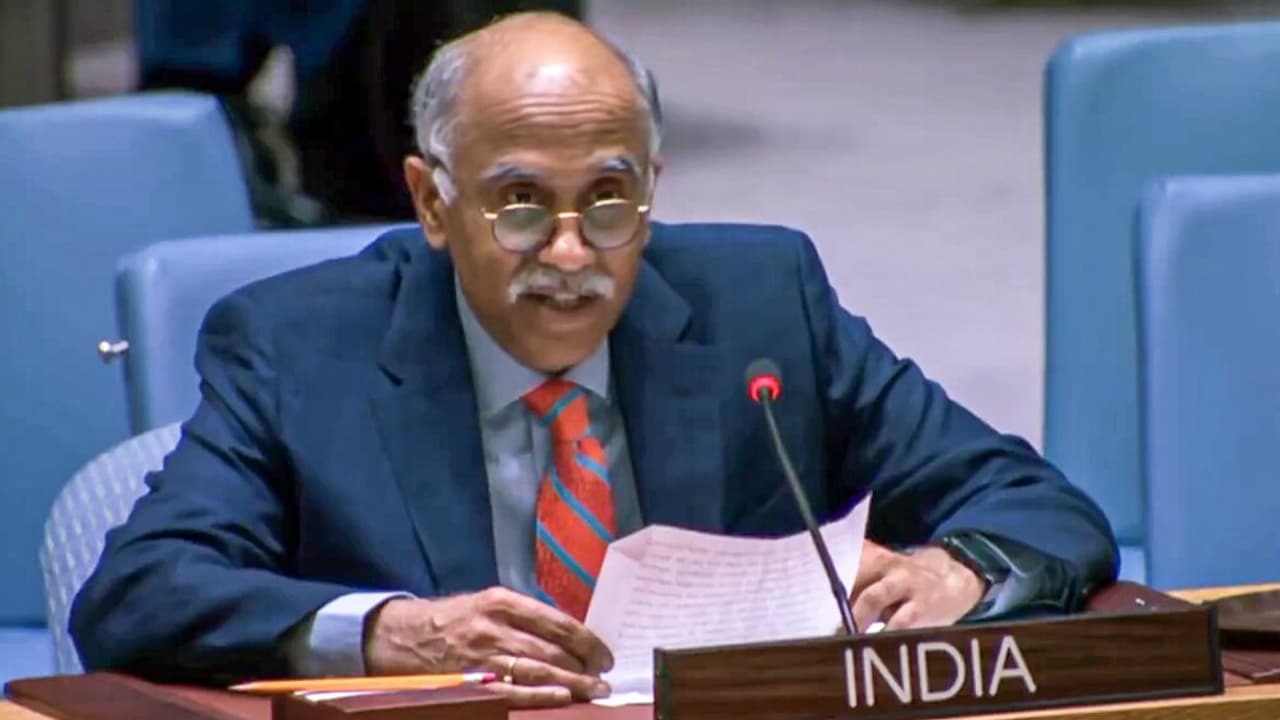India rebuked Pakistan at the UN for spreading disinformation on the Indus Waters Treaty, citing decades of terrorism, wars, and treaty violations as grounds for suspending the agreement.
India delivered a scathing rebuttal to Pakistan’s claims at the United Nations, accusing Islamabad of distorting facts related to the Indus Waters Treaty and using disinformation as a diplomatic tool while being a consistent violator of the treaty’s spirit.

“We are constrained to respond to the disinformation being carried out by the delegation of Pakistan with regard to the Indus Waters Treaty. India has always acted in a responsible manner as an upper riparian state,” India’s Permanent Representative to the UN, Ambassador Parvathaneni Harish, said on Friday.
Harish was speaking at the UN Security Council’s Arria Formula meeting organised by the Permanent Mission of Slovenia on the theme: ‘Protecting Water in Armed Conflict – Protecting Civilian Lives.’
India Suspends Treaty in Wake of Pahalgam Terror Attack
The ambassador said that India had held the treaty in abeyance after the April 22 terror attack in Pahalgam, Jammu and Kashmir, which claimed the lives of 26 civilians.
“In the wake of the horrific April 22 Pahalgam attack in Jammu and Kashmir in which 26 civilians were killed, India had decided that the Indus Waters Treaty of 1960 would be held in abeyance with immediate effect until Pakistan credibly and irrevocably abjures its support for cross-border terrorism,” Harish said.
He added that India had entered into the agreement in good faith 65 years ago, but Pakistan had consistently violated its principles.
Three Wars, Thousands of Terror Attacks: Harish
Harish noted that the preamble of the 1960 treaty mentions it was concluded “in a spirit of good will and friendship,” but that spirit has been repeatedly breached.
“Pakistan has violated the spirit of the treaty by inflicting three wars and thousands of terror attacks on India,” he said, adding, “In the last four decades, more than 20,000 Indian lives have been lost in terror attacks, the most recent of which was the dastardly targeted terror attack on tourists in Pahalgam.”
Despite India’s patience, Harish said Pakistan continues its “state-sponsored cross-border terrorism” that undermines the lives of civilians, religious harmony and economic progress.
India Sought Treaty Modifications, Pakistan Rejected All
Harish told the UN meeting that India had repeatedly proposed changes to the treaty to address new challenges — including clean energy demands, climate change and outdated infrastructure — but Pakistan has refused to engage constructively.
“Pakistan’s obstructionist approach continues to prevent the exercise of full utilisation of legitimate rights by India,” he said.
He highlighted that even as technology has evolved and some old dams are facing safety concerns, Pakistan has “consistently blocked” permissible changes to infrastructure under the treaty.
Tulbul Attack and Safety Concerns for Projects
Harish recalled that terrorists attacked the Tulbul Navigation Project in Jammu and Kashmir in 2012, demonstrating Pakistan’s continued disregard for civilian safety.
“These cynical acts continue to endanger the safety of our projects and the lives of civilians,” he said. “It is against this backdrop that India has finally announced that the treaty will be in abeyance until Pakistan, which is a global epicentre of terror, credibly and irrevocably ends its support for cross-border terrorism.”
Harish Calls Out Pakistan’s “Hypocritical” Stance on Civilian Protection
In a separate UN Security Council debate on ‘Protection of Civilians in Armed Conflict’, Harish also slammed Pakistan’s “grossly hypocritical” stance after its ambassador Asim Iftikhar Ahmad brought up the Kashmir issue.
“This has ranged from the horrific 26/11 attack on the city of Mumbai to the barbaric mass murder of innocent tourists in Pahalgam in April 2025. The victims of Pakistani terrorism have been predominantly civilians since its objective has been to attack our prosperity, progress and morale,” Harish said. “For such a nation to even participate in a discussion on the protection of civilians is an affront to the international community.”
Tensions between India and Pakistan escalated sharply after the Pahalgam attack. On May 7, India launched ‘Operation Sindoor’ and carried out precision strikes on terror infrastructure in Pakistan and Pakistan-occupied Kashmir.
Pakistan responded with attempted attacks on Indian military bases on May 8, 9 and 10. India responded firmly to those actions.
Hostilities ended after military officials from both sides — the Directors General of Military Operations — held talks and agreed to halt further military actions on May 10.
Harish concluded his remarks by stating that Pakistan has “repeatedly used civilian cover to advance the cause of terrorism.”


